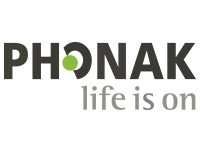
Auditory Deprivation
Many audiologists have noticed that in some older people when fitted with hearing aids they can actually hear, however they sometimes still do not understand speech well.
"It's not about what you hear it is about what you do with what you hear"
The term auditory deprivation refers to a person's lack of adequate hearing stimulation. Brain stimulation is required.
This can make their hearing loss harder to address simply because current hearing loss causes the hearing mechanism to be under-used, leading to auditory deprivation and the weakening of the entire hearing system.
Whilst it is possibly used to jolt people into addressing their hearing loss earlier - many people working with hearing impaired people believe it is true.
There are many situations where stimulation of the brain allays the onset of diseases like Alzheimer's.
from http://lowedown.net/AuditoryDeprivation.aspx
"Several studies have confirmed the existence of auditory deprivation. Hurley studied 142 adult hearing aid users. Seventy-seven subjects used monaural hearing aids and sixty-five of the subjects used binaural amplification. Each subject was tested for word recognition ability one, three and five years post fitting.
Twenty-five percent of the monaural hearing aid users demonstrated a significant decline in word recognition ability in the unaided ear after five years. Subjects with greater hearing loss were more likely to experience the unaided ear effect. Only six percent of the binaural hearing aid users experienced a significant decline in word recognition. Another study by Silman found that thirty-nine percent of monaural hearing aids users experienced the effects of auditory deprivation. Only four percent of the binaural hearing aid users experienced a similar effect."
How auditory deprivation occurs
The point to be stressed with auditory deprivation is that hearing loss typically occurs very slowly over a long period of time. People tend not to notice this slow decline. They slowly withdraw socially. They may well smile and nod their heads, but be totally tuned out. Eventually they stop going into noisy environments where they just can't cope.
Slowly they lose their cognitive ability to process sounds and separate speech from noise. The brain isn't being kept stimulated and slowly loses it's ability to recognise certain sounds.
The main problem arises when some of these elderly people eventually relent and purchase a set of hearing aids, only to find that they can hear but still have major difficulties in understanding, especially in noisy environments. The hearing aids are working just fine in enabling the wearer to hear sounds. The sounds are now audible to the ear, but the brain now has to interpret and process these sounds, and this is where the problems lies. The hearing aid makes the sound audible and the brain processes it. It's very much an issue of what you do with what you hear.
Early intervention with hearing loss is therefore critical to minimise auditory deprivation. If you are advised by a hearing professional that you have a loss that requires correction, the smart thing to do is address the problem straight away. The longer you wait the worse the outcome is likely to be.
Hearing Aid Referral
Get the best price and care from our network of professionals
FREE/no obligation
- Great Care
- Major Brands
Hearing Aid Brands in Australia










